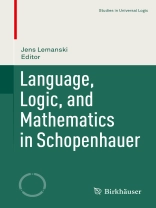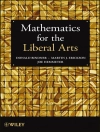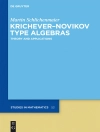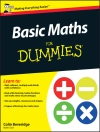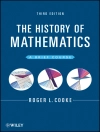The chapters in this timely volume aim to answer the growing interest in Arthur Schopenhauer’s logic, mathematics, and philosophy of language by comprehensively exploring his work on mathematical evidence, logic diagrams, and problems of semantics. Thus, this work addresses the lack of research on these subjects in the context of Schopenhauer’s oeuvre by exposing their links to modern research areas, such as the “proof without words” movement, analytic philosophy and diagrammatic reasoning, demonstrating its continued relevance to current discourse on logic.
Beginning with Schopenhauer’s philosophy of language, the chapters examine the individual aspects of his semantics, semiotics, translation theory, language criticism, and communication theory. Additionally, Schopenhauer’s anticipation of modern contextualism is analyzed. The second section then addresses his logic, examining proof theory, metalogic, system of natural deduction, conversion theory, logical geometry, and the history of logic. Special focus is given to the role of the Euler diagrams used frequently in his lectures and their significance to broader context of his logic. In the final section, chapters discuss Schopenhauer’s philosophy of mathematics while synthesizing all topics from the previous sections, emphasizing the relationship between intuition and concept.
Aimed at a variety of academics, including researchers of Schopenhauer, philosophers, historians, logicians, mathematicians, and linguists, this title serves as a unique and vital resource for those interested in expanding their knowledge of Schopenhauer’s work as it relates to modern mathematical and logical study.
Spis treści
Introduction: Jens Lemanski.- Section 1: Language.- Language as an 'Indisputable Tool and Organ’ of Reason: Intuition, Concept and Word in Schopenhauer: Matthias Koßler.- Problems in Reconstructing Schopenhauer’s Theory of Meaning: With References to Influence on Wittgenstein: Michał Dobrzański.- Concept Diagrams and the Context Principle: Jens Lemanski.- A Comment on Lemanski’s 'Concept Diagrams and the Context Principle’: Gunnar Schumann.- The World as Will and I-Language: Schopenhauer’s Philosophy as Precursor of Cognitive Sciences: Sascha Dümig.- Schopenhauer’s Perceptive Invective: Michel-Antoine Xhignesse.- Section 2: Logic.- Schopenhauer’s Eulerian Diagrams: Amirouche Moktefi.- Schopenhauer’s Logic In Its Historical Context: Valentin Pluder.- Arthur Schopenhauer on Naturalness in Logic: Hubert Martin Schüler, Jens Lemanski.- Schopenhauer and the Equational Form of Predication: Anna-Sophie Heinemann.- From Euler Diagrams in Schopenhauer to Aristotelian Diagrams in Logical Geometry: Lorenz Demey.- Metalogic, Schopenhauer, and Universal Logic: Jean-Yves Béziau.- Section 3: Mathematics.- Schopenhauer and the Mathematical Intuition as the Foundation of Geometry: Marco Segala.- Schopenhauer on Intuition and Proof in Mathematics: Jason Costanzo.- Schopenhauer on Diagrammatic Proof: Michael Bevan.- From Necessary Truths to Feelings: The Foundations of Mathematics in Leibniz and Schopenhauer: Laura Follesa.-
O autorze
Dr. Jens Lemanski, Privatdozent for Philosophy at the Fern Universität in Hagen, Germany holds a cotutela-Ph.D in philosophy from the Johannes-Gutenberg Universität Mainz and the Università del Salento (Lecce). He has been a research fellow at the Westfaelische Wilhelms-Universitaet Muenster and the Ruhr-Universitaet Bochum. He has published on the history and philosophy of science, metaphysics, logic, and the foundations of mathematics.
